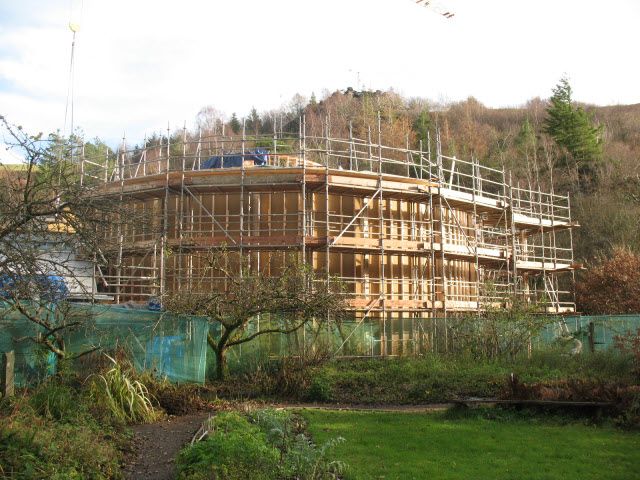Noose tightens around unsustainable buildings
Sustainable property is the way of the future. No argument. It's fact. Which is why the Building Research Establishment (BRE) has teamed up with one of the UK's top property consultants, John Pike, to deliver the UK's most innovate conference on the subject of managing sustainability in commercial property - The 40 Percent Symposium, so called because buildings are responsible for 40% of global carbon emissions in the developed world.

Sustainable property is the way of the future. No argument. It's fact. Which is why the Building Research Establishment (BRE) has teamed up with one of the UK's top property consultants, John Pike, to deliver the UK's most innovate conference on the subject of managing sustainability in commercial property - The 40 Percent Symposium, so called because buildings are responsible for 40% of global carbon emissions in the developed world.
We are witnessing the initial stages of a fundamental change that will affect demand for commercial property. It will have as much an impact on the value of property as internet shopping has had on retailing.
The impetus for this transformational change will come from occupiers as they seek to balance ever more stringent legislative and stakeholder demand on their property holdings.
The timescale may be five years but at the end of this there will be a two tier market, says top property consultant John Pike who has over 30 years experience in commercial and public sector property working as property director for such companies as BT, Network Rail and HBOS.
"This is not so much about values being higher for sustainable properties but, rather, unsustainable buildings have much lower values," said Pike who is secretary general of the International Sustainability Alliance (ISA).
The idea for the 40 Percent Symposium came about through Pike's long experience in the property sector and also because of his role with the ISA an independent non-profit company made up of a global network of leading real estate organisations.
The ISA's founding members, who are something of a who's who of real estate organisations from throughout Europe, have led to the development of key performance indicators (KPI's) for quantifying the sustainability credentials of their property in terms of energy, emissions, waste and water. These KPI's are then used to benchmark which enables members to track performance against their peers.
Sponsored Content
The forthcoming Symposium, which will be staged at The Royal Institute of British Architects, Portland Place, London on November 23, which, in part will be a distillation of this groundbreaking data, will tackle head on the key issues looking at how environmental strategies can be used for cost control and saving money, said Pike.
"The value of a commercial building is largely defined by the occupier. Empty poor buildings are bad enough, empty environmentally poor buildings will be unlettable in the future," he said.
"When I first set strategies for companies they largely revolved around three things - business strategy, location and density of use. You can now add to that sustainability.
"Every strategic decision has to factor in the environmental consequences. A part of any property strategy now needs to include an exit strategy for those buildings that are uneconomic to make sustainable.
"A recent report by the British Council for Offices says that 60% of private sector buildings in London could become obsolete as the Government steps up energy efficiency legislation.
"The report recognises that environmental legislation will tighten the noose around older buildings so that refurbishment becomes unviable, thereby increasing the rate of their depreciation and reducing their value."
An increasing amount of evidence and research is showing that Sustainable Investment (SI) in real estate can help create brand value and reputation benefits; enhance capital growth and rental income; Lower operating costs; Improve tenant retention and Reduce depreciation costs compared with non-sustainable buildings.
"The 40 Percent Symposium is aimed very much at delegates who want to really understand the tangible benefits of investing in sustainable real estate with speakers who really understand the issues and how to implement them in real life."
Homepage Image: Sustainable construction in practice (Stephen Craven | Wikimedia Commons)



